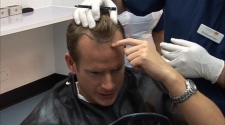As a student, having your own website might not seem so important right now – but it certainly might be once it comes time to showcase yourself. After all, everyone knows that every graduate, or graduate student, needs to have a CV or resume. CVs are the key pieces which let you describe your qualifications, who you are, your work and teaching and research experience, your publication history, and all the rest. CVs are tremendously important especially for graduate students (undergraduates tend to be more focused on the resume) but they are also limited in some crucial ways.
Specifically, it’s almost impossible for someone to read or find your CV unless you send it to them personally. As a student or graduate student trying to put your name “out there,” just having a CV limits your audience to – nearly nobody. Plus, your CV or resume is a static document. This means whenever you add new accomplishments or experiences (which you are doing continually) the document which you sent out earlier is no longer a complete picture of you.
What’s the solution? A personal website. Why? Consider the following.
– Personal websites are dynamic. As soon as you gain new skills or experience, or win an award, you can update your website.
– Websites are easy to find. Compared to a CV, which must be sent out manually, people can find your website on its own.
– It’s much more impressive than merely a Facebook or LinkedIn profile. You can design the formatting exactly how you want it to be, so it’s most suitable to showcase your accomplishments and talents. You control precisely what people can see, and how they will see it. It even shows that you can pull off a technical task like constructing a website.
– You stand out. While all students should have a website, few do. This means having one helps you stand above the pack.
– You’ll learn new skills. While it isn’t hard to build your own site, the process will teach you new skills that are advantageous to have in almost every industry or field of work.
– It will help you get work. Regardless of whether you’re searching for a position as a graduate or postgraduate student, or looking for work in industry, having a website is a powerful personal branding tool. In fact, recent studies indicate that 56% of hiring managers are far more impressed by personal websites than by any other tool – despite only 7% of job applicants having a website of their own.
– It lets you control what people find about you. Almost all potential employers (whether academic or in industry) will Google candidates in order to find out more about them. If you have your own site, you now have the option to provide a portfolio of information describing you, and to provide more information (using links) so potential employers can discover more about you.
Before you get started
Before you get started, it’s worth noting that there are some things you should know about. Most important is that – even if it seems like your site is small and unlikely to get much attention – you will probably need a privacy policy. If you even have a contact form on your site. And, even if you don’t, Google wants to see that you have one… otherwise they might drop your site from the search results.
What you should include
It’s good to welcome your website visitors with a short introduction. The introduction should include your name, any academic title – even if it`s just your high school diploma, as well as any other qualifications of which you’re particularly proud (such as “bestselling author”). You might also put up a professional photo – one which you’d be comfortable having as your LinkedIn profile photo.
You should probably have a biography as well. It’s a good place to tell readers your personal story, and give them a view into your personality. It’s common to mention your hobbies and personal interests in your bio.
Of course your website should also have your CV or resume, or at the very least a section listing your work experience (if you would like to consider the website as a whole your “CV”).
While your resume or CV on your website can be a bit less formal, it’s still key to make sure it’s free of grammar errors or typos. Along the way, you can show samples of your work too. Plus, don’t forget to list off your education, skills, and any references or testimonials you might want to share.












